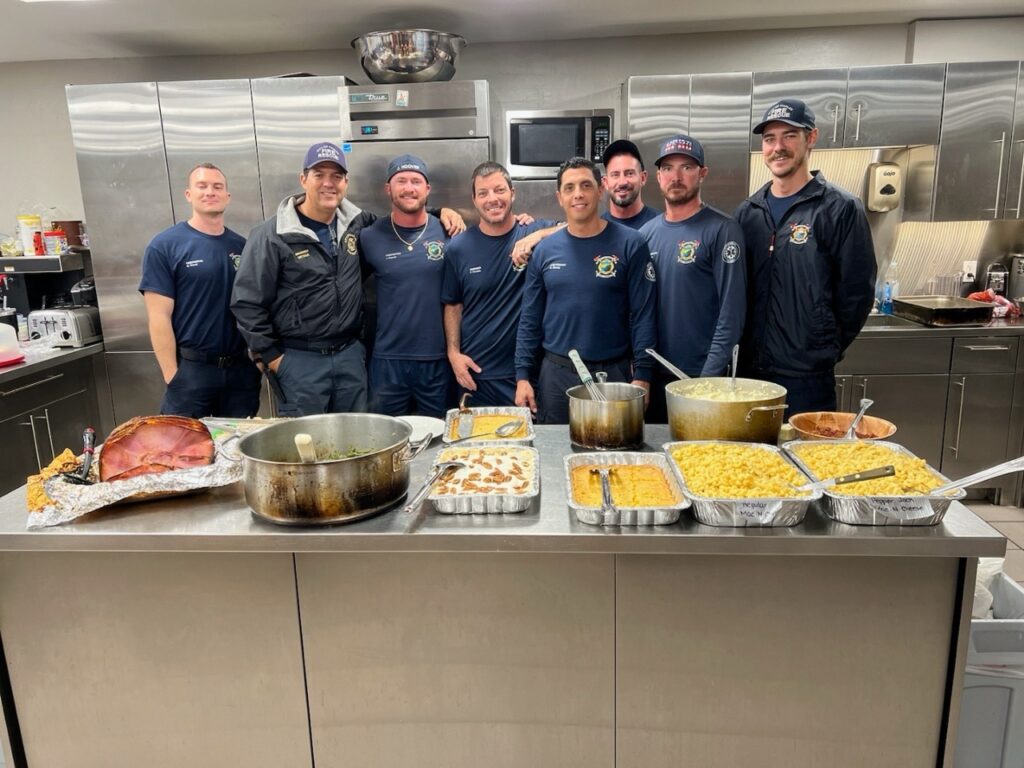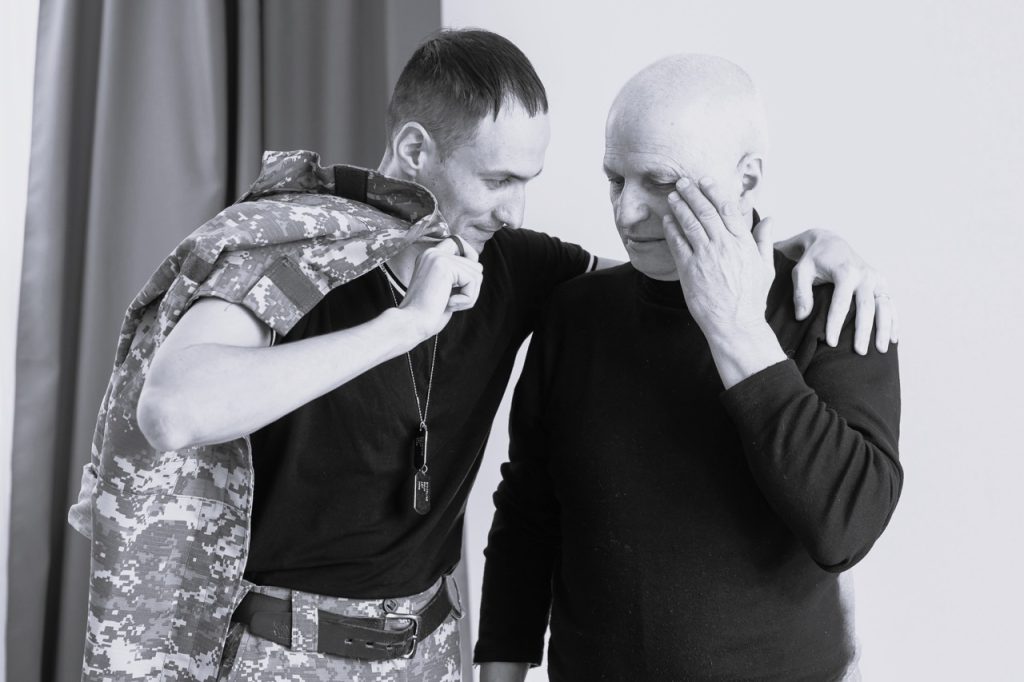Discover how plant medicine first responder retreats can have a profound impact on the mental health of people in stressful jobs like firefighters, paramedics, and other first responder roles.
First responders—our EMTs, paramedics, firefighters, and police officers—stand as society’s guardians, rushing toward danger when others flee. Yet beneath their badges and uniforms lies a hidden crisis that’s reaching epidemic proportions. The very individuals who dedicate their lives to saving others are struggling with unprecedented rates of burnout, depression, PTSD, and suicide. When traditional therapeutic approaches fall short, emerging research suggests that plant medicine, particularly psilocybin, may offer a transformative path to healing. This can be especially true in the first responder retreat setting.
The statistics are sobering and demand our immediate attention. Recent survey data reveals that 37% of EMS providers have contemplated suicide—nearly 10 times the national average for American adults. Even more alarming, 6.6% have actually attempted to take their own life, compared to just 0.5% of the general population.
This mental health crisis extends far beyond occasional stress. 86% of surveyed EMS professionals experience what researchers term “critical stress”—a level of psychological distress that significantly impairs their ability to function both professionally and personally. EMTs are 1.39 times more likely to die by suicide than the general public, making this occupation one of the most psychologically hazardous in our society.
The trauma doesn’t end when the shift does. These dedicated professionals carry the weight of human suffering, witnessing fatal accidents, losing patients despite heroic efforts, and experiencing the cumulative impact of repeated exposure to life-and-death situations. Traditional support systems, while well-intentioned, often fall short of addressing the depth of psychological wounds that first responders endure.

A 30-minute conversation with our team to explore our first responder retreats.
Despite the availability of Employee Assistance Programs (EAPs) and Critical Incident Stress Management
(CISM) teams, many first responders find themselves trapped in cycles of suffering. Only 18% of those
experiencing critical stress attended debriefing sessions, though the majority who did found them helpful.
Similarly, just 11% utilized EAP services, with 53% finding them beneficial.
The gap between available resources and effective healing reveals a fundamental challenge: traditional
therapeutic approaches, while valuable, may not be sufficient for the unique trauma profile that first
responders face. Many struggle with hypervigilance, emotional numbing, substance abuse, and a cultural
stigma around seeking help that prevents them from accessing the care they desperately need. Often, traditional support programs are not designed specifically for first responder mental health challenges.
Groundbreaking research is illuminating how plant medicine, particularly psilocybin, may offer hope
where conventional treatments have fallen short. Multiple studies are revealing the profound potential of
psilocybin-assisted therapy for trauma, depression, and burnout—conditions that plague first responder
communities. This is particularly relevant in first responder retreats and programs designed for trauma resolution.

Perhaps most compelling is the recent research specifically focusing on emergency medical service
workers. A naturalistic study of five EMSs who self-administered therapeutic doses of psilocybin
mushrooms showed visible improvement in several measures of occupational burnout that remained
stable after two months.
The study measured multiple indicators of psychological distress, including PTSD symptoms, job burnout,
secondary traumatic stress, and compassion satisfaction. All volunteers showed less intense levels of
reactivity to specific events and occupational stressors, less intense PTSD symptomatology, lower levels of
job burnout and secondary traumatic stress, and higher levels of compassion satisfaction.
Importantly, most participants attributed their successful outcomes to emotional breakthroughs and
psychological insights that occurred during their psilocybin experience. This suggests that the healing
process involves more than mere symptom suppression—it appears to facilitate genuine psychological
transformation and integration. These findings are especially promising for first responder retreat settings, where deep healing can take place outside the pressures of everyday life.
Plant medicine appears to work differently than traditional pharmaceutical approaches. Rather than
masking symptoms or providing temporary relief, psilocybin seems to facilitate profound shifts in
consciousness that allow individuals to process trauma in new ways.
Research suggests that psilocybin creates neuroplasticity—the brain’s ability to form new neural
connections—while temporarily dissolving the rigid thought patterns that often trap individuals in cycles
of trauma and depression. Studies indicate that psilocybin increases openness, connectedness, and
acceptance, which may be particularly relevant to veterans and first responders who report difficulties
trusting mental health professionals and discussing their experiences.
For first responders who have witnessed the full spectrum of human suffering, psilocybin may offer a
unique opportunity to recontextualize their experiences, find meaning in their service, and reconnect with
their fundamental humanity.
The research consistently emphasizes that set and setting—the psychological state of the individual and the environment in which the experience occurs—are crucial factors in therapeutic outcomes. Plant medicine work is not about casual use or self-medication; it requires careful preparation, skilled guidance, and intentional integration.
Studies show that supportive environments cut suicide contemplation rates in half and attempt rates by
66% among EMS workers. This underscores the importance of approaching plant medicine within a
framework of comprehensive care that includes:
When these elements come together in a first responder retreat, the healing potential of plant medicine is dramatically amplified.

A 30-minute conversation with our team to explore our first responder retreats.
While the research is promising, it’s important to acknowledge that we’re still in the early stages of understanding how plant medicine can best serve first responder communities. The studies conducted thus far involve small sample sizes and specific contexts that may not apply to all individuals or situations.
What’s clear, however, is that the current mental health crisis among first responders demands innovative approaches. Traditional therapy remains valuable and important, but for those who haven’t found relief through conventional means, plant medicine may offer a complementary path to healing.
The goal isn’t to replace traditional mental health care but to expand the toolkit of therapeutic options available to those who have dedicated their lives to serving others. First responders deserve access to the most effective healing modalities available, whether that’s conventional therapy, plant medicine, or an integrated approach that combines multiple treatment strategies.
Specialized first responder retreats provide safe, structured environments where healing is supported by peer connection, skilled facilitators, and intentional integration.
The brave men and women who serve as first responders have already demonstrated extraordinary courage in their professional lives. Seeking healing for psychological wounds requires a different kind of bravery—the willingness to be vulnerable, to explore new approaches, and to prioritize their own wellbeing alongside their service to others.
Plant medicine, when approached with proper preparation, guidance, and integration, may offer a powerful tool for transformation. The research suggests that it can help individuals move beyond merely managing symptoms to experiencing genuine healing and post-traumatic growth.
As we continue to learn more about the therapeutic potential of psilocybin and other plant medicines, it’s our responsibility to ensure that first responders have access to safe, legal, and effective treatment options. Their service to our communities has been immeasurable; our commitment to their healing must be equally profound.
At Ananda Lodge, our first responder retreats are designed with these principles in mind, combining evidence-based care with the sacred traditions of plant medicine.
First responder retreats are a sacred journey. Choose the space that’s built to honor it. Learn more about: